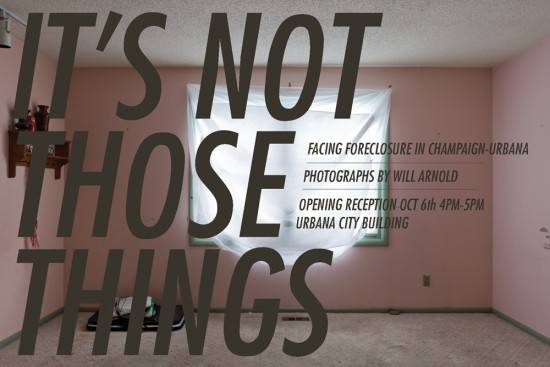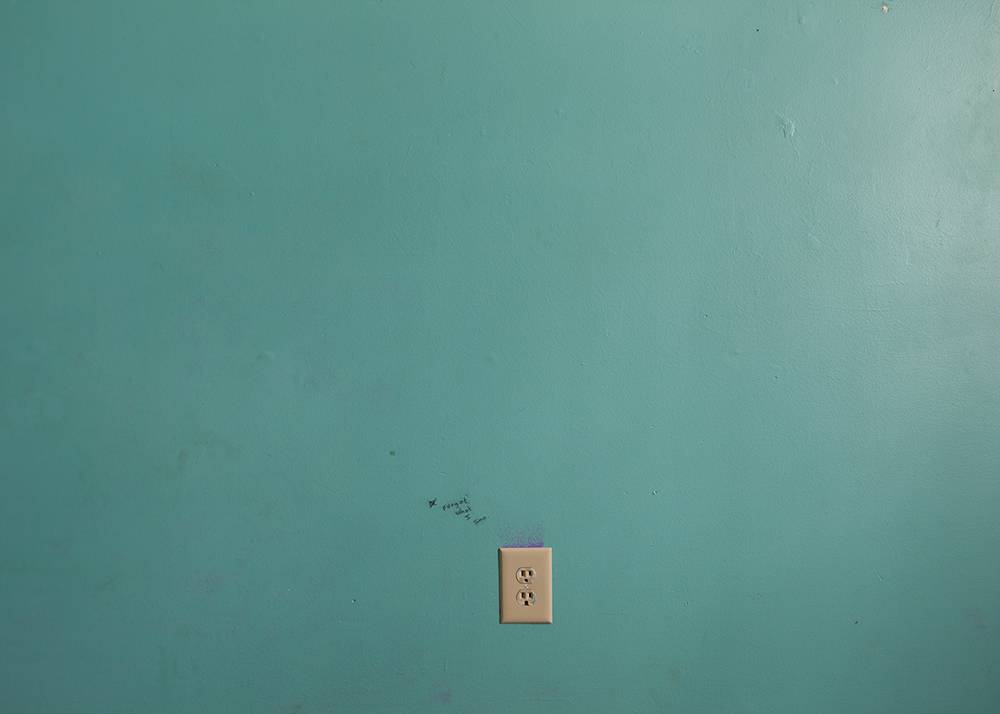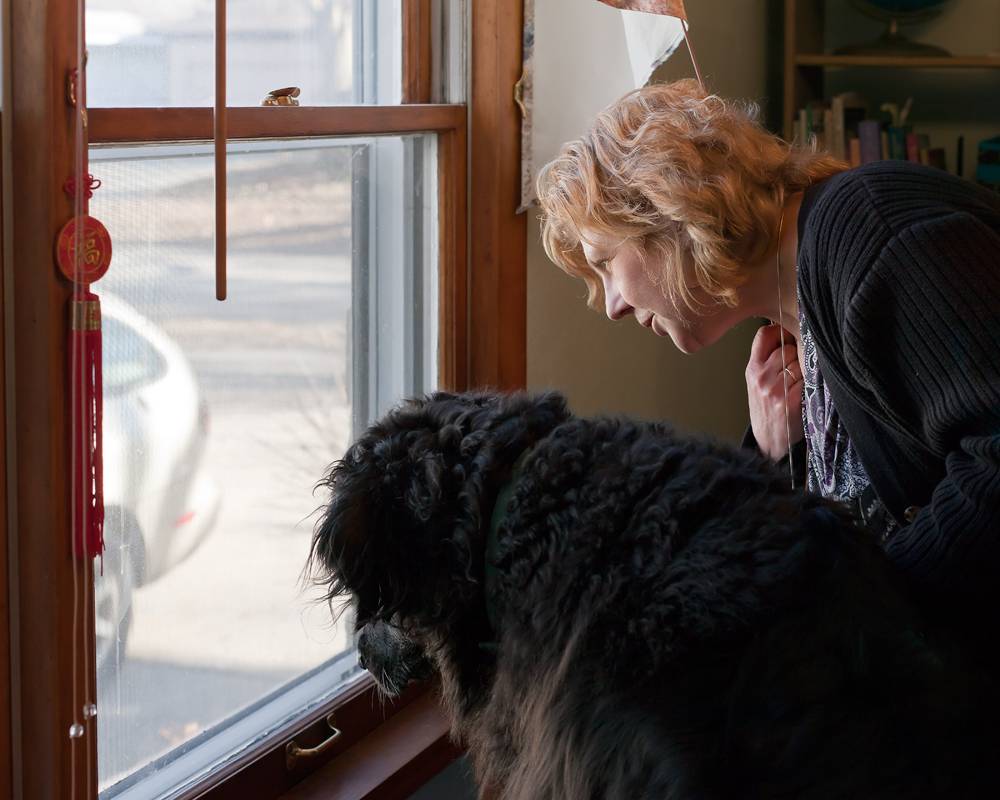
“Part of the point of what I was trying to get across by doing this is to tell this story in a way to normalize it. We all know this is happening, it’s no secret, but the vast majority of people when they’re faced with foreclosure, they don’t tell anybody, they don’t reach out for help. We’ve attached this shame, this stigma.” — Will Arnold
For many of us, foreclosure is still an abstract concept, living only in statistics that pass into one of our ears and out the other. In order to bring the issue to the front of our minds, U of I photography grad student Will Arnold created “It’s Not Those Things: Facing Foreclosure in Champaign-Urbana,” a photo exhibition that’s been on display in the Urbana City Building since October 6, and will run until the end of November.
“It’s Not These Things” is the latest entry in Urbana’s Artist of the Corridor program, which rotates a different artist’s work through the City Building’s hallways every two months. Since the City Building also functions as the police station, the exhibit — which combines still photographs with extended quotes from the matriarch of an Urbana family evicted from their home earlier this year — is more or less open to the public 24 hours a day, 7 days a week.
“The project is tracing the story of one family in Urbana as they went through foreclosure on their home,” Arnold explained, “and subsequently having to leave their home — move out of the place that they’d lived for 17 years, where they’d raised their children. They ended up moving into a rental house in Urbana and are in the process of trying to get back on their feet.”
Arnold began meeting with the family, who are unnamed, in late 2010, when they were in the process of moving into a rental home, but still had access to the house that was being foreclosed upon. The images of the family’s mostly-empty residence are moving, and are often intensely sad when combined with their observations on the process.
Arnold wanted to help give voice to people who too often remain silent throughout the foreclosure process. He noted, “The victims of foreclosure are often blamed as being irresponsible, the causes of neighborhood blight and bringing down housing values. So, they don’t want to come out and say anything about it because no one wants to admit that for whatever reason they got into this situation.”

Many times, though, there’s a story to be told in the foreclosure that goes far beyond irresponsible financial practices. “More often than not, you get a situation like with this family,” Arnold continued, “where they had been there for 17 years, and just through an unfortunate series of events, job losses and losing health insurance and all these kinds of things, they were not able to keep up on it.”
He continued, “”Everyone is a few steps away from everything falling apart. If you lost your job, what would happen then? I think we’re more vulnerable than we think we are.”

Arnold was motivated in this project by a desire to raise the dialogue about foreclosure. “This whole culture of blaming the victims is not helping the situation,” he said. “And not letting people see that this is a terrible thing that happens, but we maybe need to be doing something to be helping these people out, or helping this situation, rather than saying ‘Oh, all these irresponsible people who are dragging the economy down by losing their homes, it’s all their fault.'”
———————
You can hear the full interview with Will Arnold below, split into two parts of about 9 minutes apiece.
Interview with Will Arnold, Part 1
Interview with Will Arnold, Part 2








